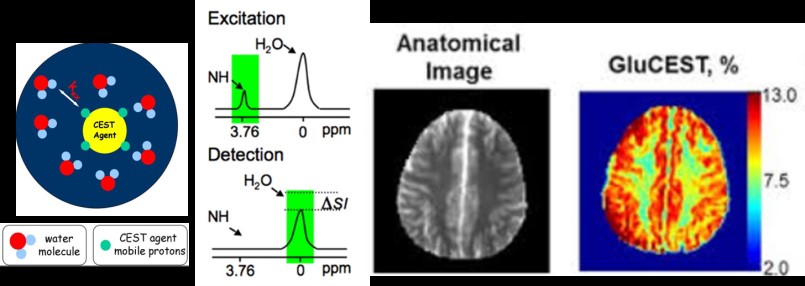

The mechanism of the shortened-T1 is mainly due to dipole–dipole interactions of coordinated water molecule with the Gd3+ complex 5, 6. The pharmacokinetic parameter of Gd-based CAs is spin–lattice relaxation time constant ( T 1)-shortening because of leakage to extracellular tissues from cerebral vessels owing to blood–brain barrier destruction, which allows the CA to leak out into the extracellular space 4. Therefore, the r1 of a CA may reflect the biological environment of the lesion and act as an index of the lesion microenvironment. It is well known that the r1 of a Gd-based CA is affected by the rate of exchange interaction of water protons, which is influenced by factors around the lesion area, such as pH, temperature, and diffusivity 1, 2, 3. The effect of contrast enhancement by a gadolinium (Gd)-based contrast agent (CA) depends on both its concentration and longitudinal relaxivity (r1) in lesions. In conclusion, our method has potential clinical applications for assessing the treatment effects. Our results might suggest that QPM can separately quantify r1 and CA concentration in brain tumors and that pHe brain tumor mapping could serve as a tumor biomarker. Moreover, mean pHe value showed a trend for tumor malignancy having a lower pHe value and primary brain tumor having a significantly lower pHe than other brain diseases (P < 0.001).

In this study, the primary brain tumor group showed significantly higher r1 values than other brain disease groups ( P < 0.001). We demonstrated that it is possible to evaluate pathophysiological tumor changes due to therapeutic efficacy by measuring r1 in contrast-enhanced lesions. Furthermore, we also aimed to estimate the extracellular pH (pHe) of tumor lesions. We present a new method to evaluate relaxivity (r1) and contrast agent concentration separately in contrast-enhanced lesions using quantitative parameter mapping (QPM). In clinical magnetic resonance imaging, gadolinium-based contrast agents are commonly used for detecting brain tumors and evaluating the extent of malignancy.


 0 kommentar(er)
0 kommentar(er)
